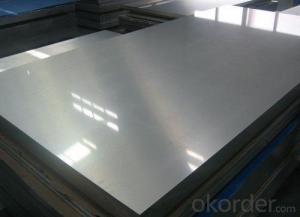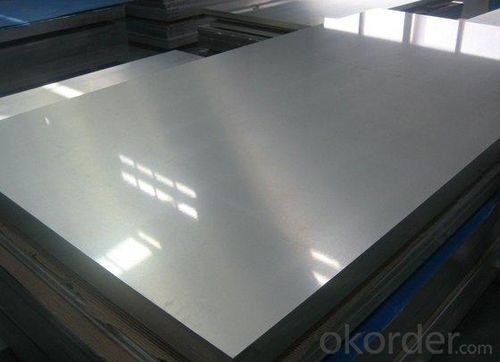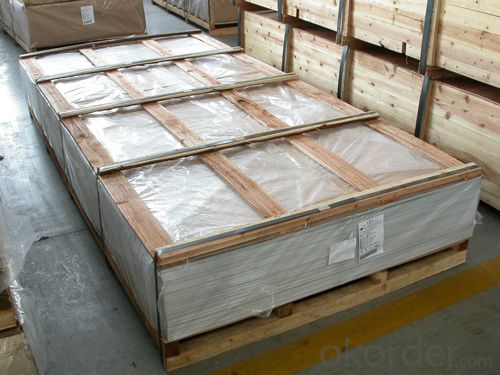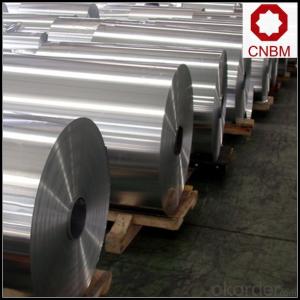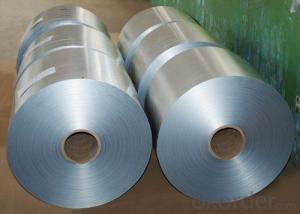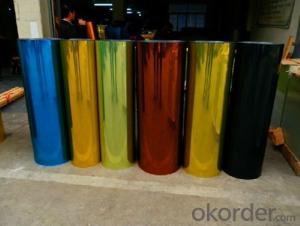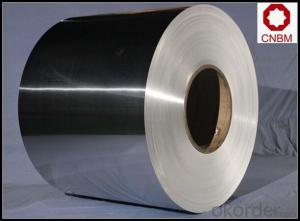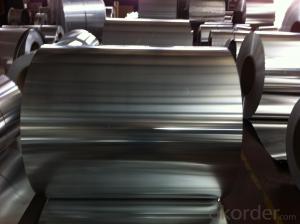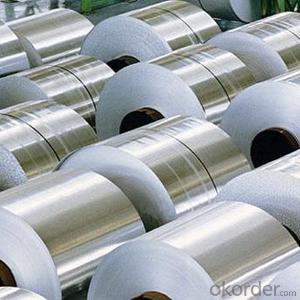3003 5052 Channel Letter Aluminum Coil Plain Sheet Mill Finished
- Loading Port:
- China main port
- Payment Terms:
- TT OR LC
- Min Order Qty:
- 5 m.t.
- Supply Capability:
- 5000 m.t./month
OKorder Service Pledge
OKorder Financial Service
You Might Also Like
Specification
1. Description of 3003 5052 Aluminium Plain Sheet Mill Finished
| Alloy No. | Thickness (mm) | Width (mm) | Length (mm) | Temper | |
| A1050,A1060, A1070,A1100 | 0.2-100 | 20-2200 | 20-8000 | O,H12,H22,H14,H16,H18, H24,H26,etc | |
| A3003,A3105,A3004 | 0.2-100 | 20-2200 | 20-8000 | O,H14,H18,H24,etc | |
| A5052 ,A5005,A5083,A5754 | 0.2-100 | 20-2200 | 20-8000 | O,H18,H24,H32,H34,H111,H112 ,etc | |
| A6061,A6082,A6063 | 0.2-200 | 20-2200 | 20-8000 | T4,T6, T651,etc | |
| A8011 | 0.2-100 | 20-2200 | 20-8000 | O,H12,H22,H14,H16,H18,H24,H26, etc | |
| Packing : Export wooden pallets. The bundle wegiht not exceed 2MT. Loading:by 1x20GP, 1X20GP can load about 18MT | |||||
| Standards:ASTM-B209. EN573-1, GB/T3880.1-2006 | |||||
| Quality of material: totally free from defects like white rust, oil patches, roll marks, edge damage, camber, dents, holes, break lines, scratches and free from coil set | |||||
2. Application of 3003 5052 Aluminium Plain Sheet Mill Finished
Mainly used insigns, billboards, building exterior decoration, bus body, high-rise buildings and factories wall decoration, kitchen sink, lamp, fan leaves, with pieces of electronic, chemical equipment, sheet metal processing parts, deep drawing or spinning hollowware, welding parts, heat exchangers, bell surface and disk, plate, kitchenware, decorations, reflective devices, ect
3. Feature of 3003 5052 Aluminium Plain Sheet Mill Finished
*Such coil is specially designed to replace aluminum ingot, due to the high export tax of aluminum ingot, the coil has better price than ingot.
*This type of coil can fit customer's remelting furnace just like ingot, no need to make any change to the production line that was previously used for ingot. The standard coil size and weight is very suitable for the feed gate of furnace.
*This type of coil causes less material wastage than ingot when remelted.
*Our coil is made directly from ore, no need to go though the ingot making process, quality is much better than other suppliers who use ingot scrap to make coil.
Be free from Oil Stain, Dent, Inclusion, Scratches, Stain, Oxide Dicoloration, Breaks, Corrosion, Roll Marks, Dirt Streaks and other defect which will interfere with use
4. Certificate:
SGS and ROHS(if client request, paid by client), MTC(plant provided), Certificate of Origin(FORM A, FORM E, CO), Bureau Veritas and SGS (if client request, paid by client), CIQS certificate
5. Image of 3003 5052 Aluminium Plain Sheet Mill Finished
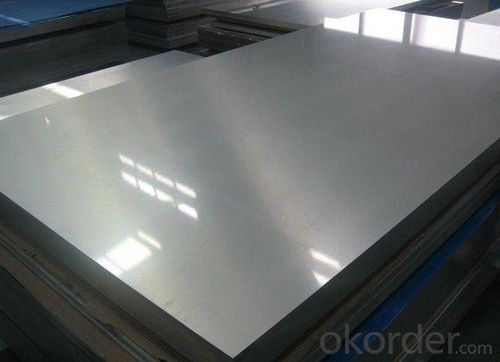
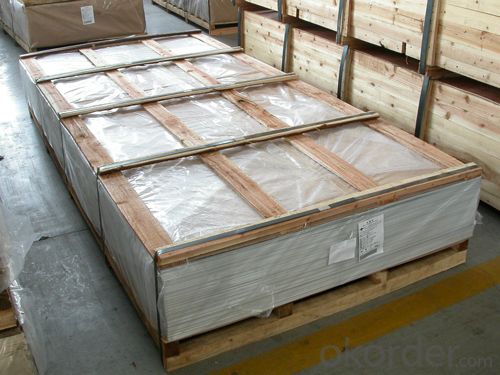
5. FAQ
1) What is the delivery time?
Dpends on actual order, around 20 days
2) What is the QC system:
We have QC staff of 20 persons and advanced equipment, each production is with MTC traced from Aluminum ingot lot.
3) What market do you mainly sell to?
Australia, America, Asia, Middle East, Western Europe, Africa etc
- Q: What are some normal everyday products made from aluminum that I can use to recycle?
- cool drink cans.
- Q: How are aluminum coils protected against oxidation during storage?
- Aluminum coils are protected against oxidation during storage through a variety of methods. One common method is applying a protective coating on the surface of the coils. This coating acts as a barrier, preventing oxygen from coming into contact with the aluminum and causing oxidation. The coating can be a thin layer of oil or a special protective film. Another method is storing the coils in a controlled environment with low humidity. Moisture in the air can accelerate the oxidation process, so by keeping the coils in a dry environment, the risk of oxidation is reduced. Additionally, aluminum coils can be stored in airtight packaging, such as plastic wraps or vacuum-sealed bags. This further minimizes the exposure to oxygen, preventing oxidation. It is also important to handle the coils with care during storage to avoid any damage that could potentially expose the aluminum to the air. Proper packaging and stacking techniques are crucial to ensure the coils remain protected. Overall, a combination of protective coatings, controlled environments, and proper handling techniques are employed to safeguard aluminum coils against oxidation during storage.
- Q: what is aircraft grade aluminum?
- Military Grade Aluminum
- Q: What kind of sensor is appropriate for aluminum coil thickness measurement?
- Optical sensor.
- Q: Can aluminum coils be used for HVAC systems?
- Yes, aluminum coils can be used for HVAC systems. Aluminum coils are commonly used in HVAC systems as they offer several advantages over other coil materials. Firstly, aluminum is a lightweight material, which makes it easier to handle and install. This can result in lower installation costs and reduced strain on the structure of the HVAC system. Secondly, aluminum coils have excellent heat transfer properties. They efficiently transfer heat from the refrigerant to the surrounding air, which is crucial for the effective functioning of the HVAC system. Aluminum coils also have a high resistance to corrosion, which is particularly important in humid environments or areas with high levels of pollutants. Additionally, aluminum is a highly recyclable material, making it an environmentally friendly choice for HVAC systems. It can be easily recycled and reused, reducing the need for new material extraction and minimizing waste. Overall, aluminum coils are a reliable and efficient choice for HVAC systems, providing excellent heat transfer, durability, and environmental sustainability.
- Q: I have a diamond back bike with an aluminum frame. will it rust if i ride or put it in the frame? is it bad for the bike?
- sophisticated task. search onto a search engine. this can help!
- Q: Is it possible to utilize a press machine to bend aluminum coils?
- <p>Yes, you can use a press to bend aluminum coils. Presses are versatile machines capable of bending various materials, including aluminum. However, it's crucial to select the appropriate press type and size for the specific coil dimensions and desired bend. Additionally, ensure the press has the necessary tonnage to handle the bending force required for aluminum. Using the right dies and lubrication can also improve the bending process and prevent damage to the coils. Always follow safety guidelines and consult with equipment specifications to ensure the press is suitable for bending aluminum.</p>
- Q: Can aluminum coils be used in the production of aluminum sunshades?
- Yes, aluminum coils can be used in the production of aluminum sunshades. Aluminum coils are typically used as a starting material in the manufacturing process of aluminum sunshades. These coils are made from high-quality aluminum, which is known for its lightweight and durable properties. The coils are then fabricated and shaped into the desired form for the sunshade, whether it be slats, louvers, or a solid panel. Aluminum is a popular choice for sunshades due to its corrosion resistance and ability to withstand various weather conditions. Additionally, aluminum is easily recyclable, making it an environmentally friendly material for sunshade production. Overall, aluminum coils are an essential component in the production of aluminum sunshades, providing strength, durability, and aesthetic appeal to these shading structures.
- Q: Can aluminum coils be used for electronic enclosures?
- Indeed, electronic enclosures can utilize aluminum coils. The lightweight characteristic, remarkable thermal conductivity, and corrosion resistance render aluminum a favored option. These coils can be effortlessly molded into diverse dimensions and configurations, making them exceptionally suitable for personalized enclosure designs. Moreover, aluminum exhibits electromagnetic shielding qualities, effectively safeguarding delicate electronic components against external disturbances. All in all, aluminum coils prove to be a fitting alternative for electronic enclosures, offering durability, functionality, and aesthetic allure.
- Q: Is it possible to use a saw to cut aluminum coils?
- <p>Yes, aluminum coils can be cut with a saw, but it's important to use the right type of saw. A hacksaw or a fine-toothed metal cutting saw is suitable for cutting aluminum. Lubrication is also crucial to reduce friction and prevent the saw blade from overheating. When cutting aluminum, it's advisable to use a cutting fluid or a light machine oil to keep the blade cool and ensure a clean, smooth cut. Always follow safety precautions and wear appropriate protective gear when cutting metal.</p>
Send your message to us
3003 5052 Channel Letter Aluminum Coil Plain Sheet Mill Finished
- Loading Port:
- China main port
- Payment Terms:
- TT OR LC
- Min Order Qty:
- 5 m.t.
- Supply Capability:
- 5000 m.t./month
OKorder Service Pledge
OKorder Financial Service
Similar products
Hot products
Hot Searches
Related keywords
